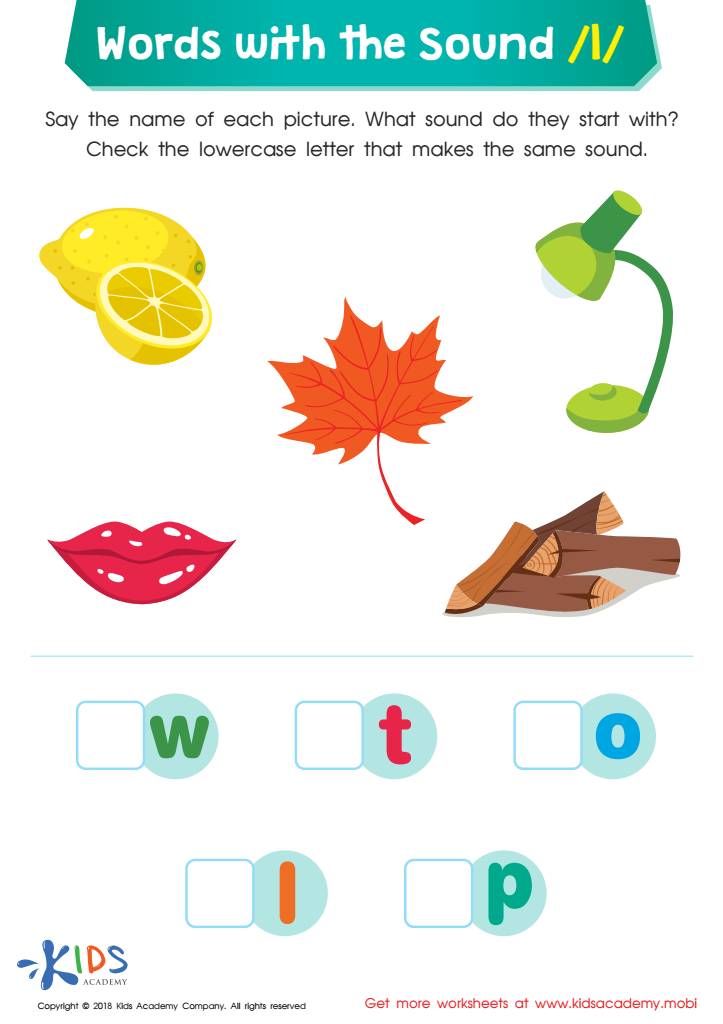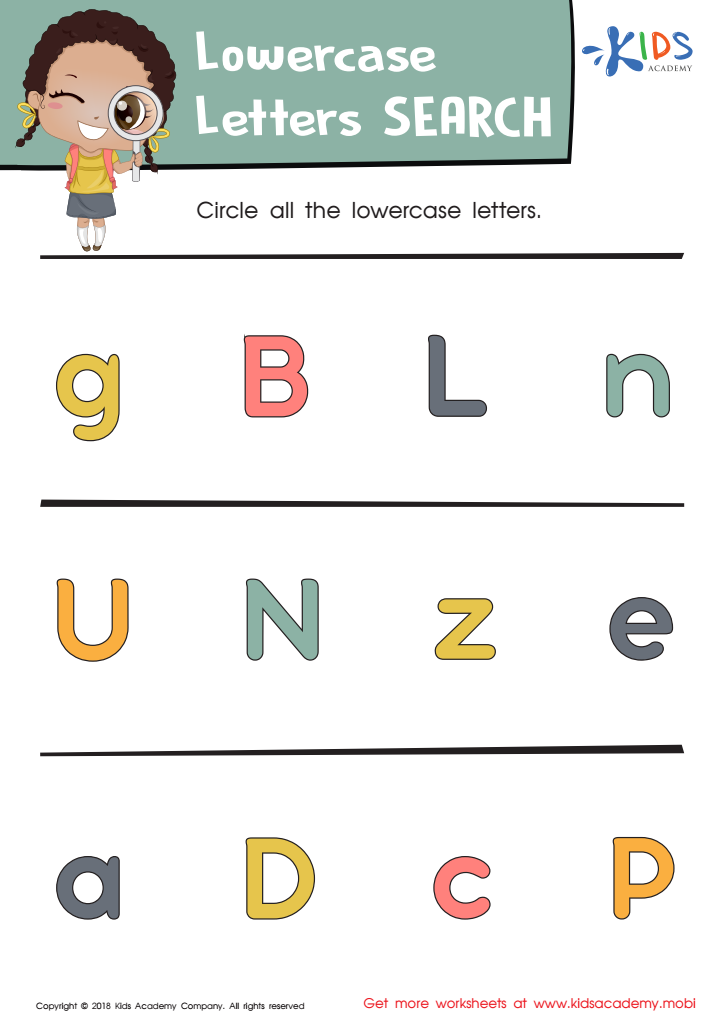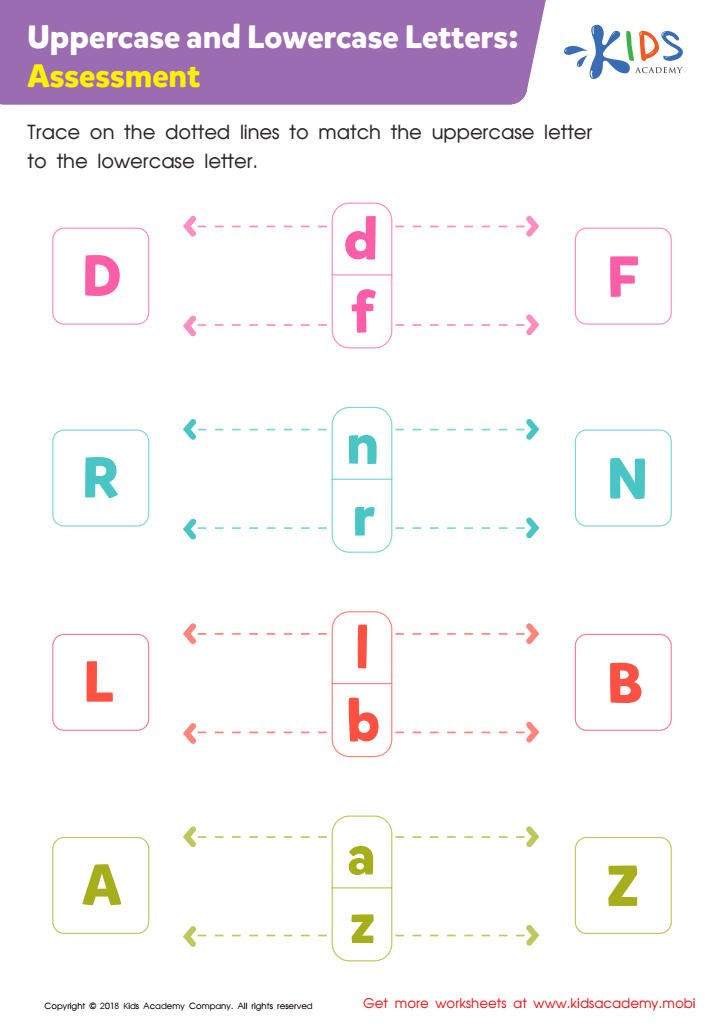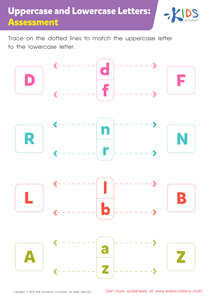Easy Lowercase/Small Letters Worksheets for Ages 3-4
3 filtered results
-
From - To
Looking for engaging and educational resources to help your child master lowercase letter writing? Discover our "Easy Lowercase/Small Letters Worksheets for Ages 3-4" designed specifically for preschoolers. Our worksheets use fun activities and colorful illustrations to teach letter recognition and writing skills. Perfect for parents and teachers, these printable sheets focus on building a strong foundation in early literacy through hands-on practice. Download our high-quality, easy-to-use worksheets to support your child's learning journey and watch as they confidently learn to recognize and write lowercase letters in no time!


Words with Sound L Reading Worksheet


Lowercase Letters Search: Assessment Worksheet


Uppercase and Lowercase Letters: Assessment Worksheet
Early exposure to lowercase/small letters is crucial for children aged 3-4 as it sets the foundation for their literacy skills. Lowercase letters appear more frequently in written text compared to uppercase letters. When children become familiar with lowercase, they are able to recognize words, follow sentences, and eventually read stories with greater ease. This early familiarity can lead to smoother and more rapid reading development.
Lowercase letters are also important for developing proper writing skills. Young children start scribbling and drawing letters as part of their natural growth process. Encouraging them to learn lowercase letters early helps them practice fine motor skills and hand-eye coordination, essential components for writing.
Moreover, mastering lowercase letters can boost children's confidence. As they notice their ability to identify letters in books or even on signs, their self-esteem grows, fostering a love for learning and reading. Additionally, early literacy skills correlate with academic success, providing a strong base for future schooling.
Parents and teachers play pivotal roles in making this learning engaging and fun. Using playful methods like alphabet games, interactive stories, or educational apps can support children in learning lowercase letters enjoyably and effectively, shaping not only knowledgeable learners but enthusiastic ones.
 Assign to My Students
Assign to My Students











